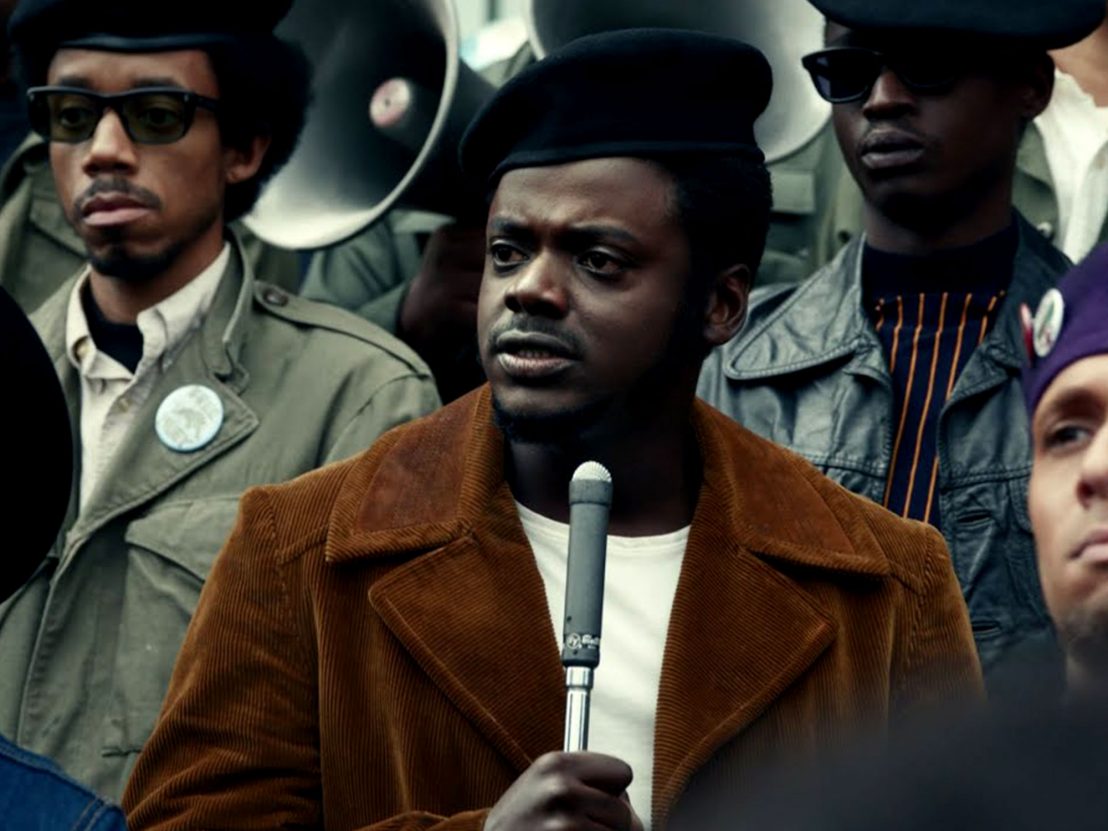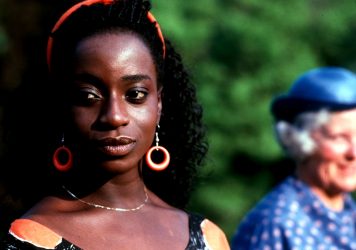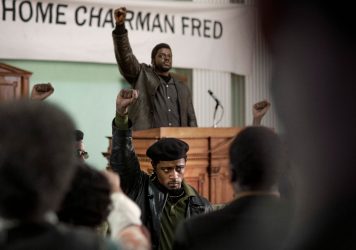
This month the Dolby Theatre in Hollywood will host the 93rd Academy Awards. Among this year’s hopefuls is Daniel Kaluuya, nominated in the Best Supporting Actor category for his portrayal of activist and Black Panther leader Fred Hampton in the biopic Judas and the Black Messiah. It marks Kaluuya’s second appearance on the Oscar shortlist following his breakout role in Jordan Peele’s Get Out in 2017.
Whereas Kuluuya’s dedication to his role in Judas and the Black Messiah cannot be doubted, his casting in the first place has raised eyebrows. Prominent Black voices in the American media have questioned whether an actor born and raised in Britain was the right choice to play one of the most important African-American figures of the 20th century. In a recent radio interview with Charlamagne Tha God, co-host of The Breakfast Club, Kaluuya was asked to respond to criticisms over his inclusion in the film, with the host asking “What do you say to critics who say roles like Fred Hampton should go to African-Americans only?”
This is not the first time concerns have been expressed over Kaluuya’s portrayal of an African-American. Following the release of Get Out, Samuel L Jackson aired his own misgivings about the film and its casting choices. Jackson also highlighted the casting of David Oweyelo as Dr Martin Luther King Jr in Ava duVernay’s Selma, believing that economics and Anglophilia played a part. “[Black British actors are] cheaper than us, for one,” he said, “And they think they’re better trained, for some reason, than we are because they’re classically trained.”
Since Jackson’s controversial comments, instances of Black British actors landing major African-American roles have become more common. In a similar vein to Oweyelo and Kaluuya, the likes of Damson Idris, OT Fagbenle, Cynthia Erivo and Kingsley Ben-Adir have achieved similar levels of success in the US, with the latter two in particular garnering critical acclaim for playing Harriet Tubman and Malcolm X in Harriet and One Night in Miami respectively.
“To limit actors to playing roles that match their birth certificates disadvantages both audiences and performers.”
When it comes to unpacking this trend, Marcus Flemmings, filmmaker and owner of BAME Models & Talent Management, a London-based agency that specialises in working with People of Colour, sees where Jackson was coming from when he spoke about Black British actors being ‘cheaper’ and ‘better trained’, but still has reservations of his own. Speaking to LWLies, he says: “I think there is merit to the perception. [But] sometimes perceptions create their own narrative which becomes a false narrative. I believe what has happened is that the myths have become ‘truths’ – but in actuality, they are not any cheaper and not [better] trained.”
Flemmings acknowledges the fact that there has been a high volume of Black British actors scoring African-American roles in recent years, although he suggests it’s partly down to a lack of opportunities on home soil. “Would you rather be in a Marvel movie; work with Spike Lee, [Quentin] Tarantino or [Ryan] Coogler; star in a progressive and diversely rich TV drama; or be a drug dealer in Top Boy? I know what I’d rather do.”
He’s not the first to express such a viewpoint. Against a backdrop of wall-to-wall period dramas on British screens, Idris Elba – who grew up in East London but made his name playing Stringer Bell in HBO’s hit show The Wire – used his speech in the House of Commons to lament the lack of opportunities for People of Colour. “The Britain I come from is the most successful, diverse, multicultural country on earth,” he told politicians in 2016. “But here’s my point: you wouldn’t know it if you turned on the TV.”
There is also an argument that Black Britons have a particular advantage over African-Americans. Speaking to Buzzfeed in 2013, Carmen Ejogo, who played Coretta Scott King in Selma, presented her on theory as to why Black British actors like herself might be better placed to cut to the core of such roles: “I didn’t know who Coretta was until I played her the first time. [So] It wasn’t as daunting as it might have been for an American actress. [For] An African-American actress… that might have been a bit more of a challenge.”
However, the same argument can be applied more broadly for all actors – regardless of race – who take on roles outside their immediate experiences, and it would be wrong to use it to allude to inalienable differences between Black British and African-American performers, of which there are none. There are, of course, stellar examples of American actors taking on other Black roles. In 2005, Don Cheadle was Oscar-nominated for playing hotel manager-turned-political activist Paul Rusesabagina in Hotel Rwanda; the following year Forest Whitaker won for his portrayal of notorious Ugandan dictator Idi Amin in The Last King of Scotland.
So what about lived experience? While an actor may undertake extensive research for a role, there are some things that cannot be learned from textbooks. It is true that certain aspects of the Black experience are universal, but other parts of it are specific and nuanced; reflective of when and where someone was brought up. Blackness is not a monolith.
On the African-American experience, Stephane Dunn, Academic Program Director of Cinema, Television, and Emerging Media at the Historically Black MoreHouse University, says: “Since the beginning of film, of watching movies in segregated theatres in a Jim Crow society that was reflected in motion pictures, our gaze has been informed by our critical awareness and engagement of our problematic representation and marginalisation – including what this meant for the careers of talented AA actors and actresses.”
To limit actors to playing roles that match their birth certificates disadvantages both audiences and performers. It denies us the magic of seeing on-screen transformations take place. While it is natural for tension to rise over who gets what of the few prestigious roles on offer, considering how rare it is for Black people – British and American – to be given the space to tell their stories, divisions and fractures in the diaspora only serve to minimise the collective voice and make it easier to ignore. The reality is that a win for one group of Black people is a win for all its diverse communities across the globe.
As Dunne puts it: “Global connectivity among Black communities is powerful and we’ve seen that during revolutionary periods in Black liberation struggle. African-American and British actors are teamed up in various films, but positive coalition building generally between Black people throughout the diaspora is always needed and that includes artistically.”
Published 11 Apr 2021

By Nadia Latif
A recent conference highlighted the urgent need to promote diversity across the UK industry.

By Leila Latif
Commanding performances from LaKeith Stanfield and Daniel Kaluuya power this electrifying Black Panther drama.

By Tom Bond
In BlacKkKlansman, the director dramatises real-life events in order to make his point.